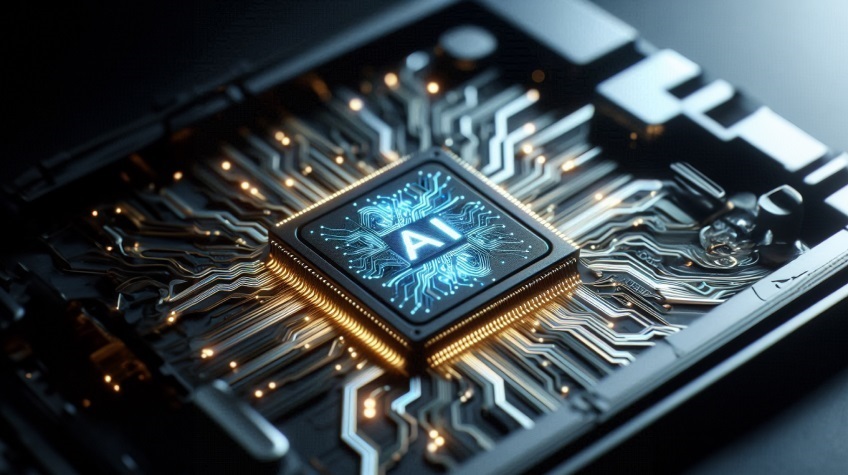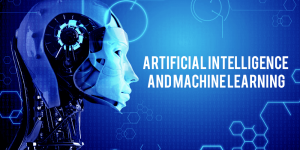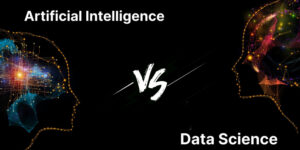
Today, the amount of data that is generated, by both humans and machines is far away from human’s ability to absorb, interpret, and make complex decisions based on that data. This problem forms the basis for the Birth of artificial intelligence (AI). AI is nothing but a mimic of human intelligence processes through the creation and application of algorithms built into a dynamic computing environment.
The term has become more popular due to recent advances in Artificial advances and Machine learning. Machine learning is the area of AI where machines are responsible for completing daily tasks and are believed to be smarter than the humans. AI is everywhere, making it the most essential part today.
Let’s take a look on its most important form which is used for its development and deployment as well, that is AI chip. Let’s get started…
Table of Contents
- What is an AI Chip?
- How Does it work?
- Uses of AI Chips
- Top Sellers Of AI Chip
- Benefits of AI chip
- Precautions to be taken while using AI Chip
What is an AI Chip?
AI chips have become more crucial than ever in this modern world. AI chip is a computer hardware or, we can say, a specialized integrated circuit designed to handle AI tasks. AI computer chips are specifically designed for the development and deployment of artificial intelligence systems. With the advancement of AI technology, the increasing demand for faster and more efficient computers has become crucial, making AI chips an essential component.
At first, the AI workloads were driven by traditional CPUs (Central Processing Units), the term most of us are aware of. However, after the emergence of AI, CPUs were replaced with GPUs (Graphical Processing Units). GPUs were very efficient in handling certain types of AI workloads. But now, the most recent development in AI chip technology is the Neural Processing Unit (NPU). NPU is a processor which is believed to work like a human brain. Just like a human brain that learns from past experiences and makes decisions by combining them with its own prior knowledge, NPU also works on this theory. NPUs are built in such a way that accelerates deep learning algorithms. This degree of specialization allows NPUs to deliver significantly higher performance for AI workloads compared to CPUs and GPUs.
This is all about AI chips; let’s now take a look at their working. Here we go…
How Does it work?
Typically, a chip is a microchip, an incredibly small integrated circuit made from semiconductor material. It includes components like transistors etched along with it. Transistors serve to power various computing functions, including memory and logic. Memory chips handle data storage and retrieval, while logic chips act as the central processing unit that processes the data.
AI chips mainly focus on the logic side and are designed to handle the demanding data processing requirements of AI workloads. These specialized chips are specifically optimized for tasks that CPUs cannot efficiently handle. AI processing chips integrate a significant number of faster, smaller, and more efficient transistors. This enables them to carry out a greater number of computations per unit of energy, leading to quicker processing speeds and reduced energy consumption.
AI chips also possess exceptional capabilities that significantly speed up the computations needed for AI algorithms. One notable feature is their ability to perform multiple calculations simultaneously through parallel processing.
Parallel processing plays a vital role in artificial intelligence. It enables simultaneous execution of multiple tasks. This, in turn, enhances the speed and efficiency when handling complex computations.
Unlike traditional processors, AI chips are not bound to limited tasks but can perform a number of tasks simultaneously. AI chips operate through neural networks, which use dynamic computer algorithms to enhance efficiency. These chips use machine learning algorithms to analyze data and make informed decisions rapidly. Reinforcement Learning (RL) is an AI technology used in chip design that utilizes multiple chip floor designs to achieve the best PPA configurations. With continuous reinforcement, the RL system improves and produces better designs autonomously.
Uses of AI Chips
- AI chips are becoming a necessity in wearable technologies. AI helps the user’s speech, patterns, moods, and heartbeats and informs the user of the warning signals.
- AI has also become an important component of the robotics industry.
- AI computer chips are also used in natural language processing, which analyzes user conversations and messages like chatbots, assistants, and online messaging apps.
- AI is also making space in the healthcare industry.
- Major companies like Tesla, Ford, and BMW are maintaining their security aspect just by aiding the driver using AI.
- AI chips are essential for the development of modern artificial intelligence. They are often used in advanced language models. AI chips greatly enhance the speed at which AI, machine learning, and deep learning algorithms are trained and refined.
- AI chips have a wide range of applications, from enhancing smart homes to transforming smart cities. AI is used on a wide range of smart home devices, including watches, cameras, and kitchen appliances. This is made possible through the use of AI chips. Processing can occur in proximity to the data source rather than relying solely on cloud infrastructure. This results in decreased latency, enhanced security, and improved energy efficiency
- AI is also integrated into driverless cars. AI chips play a crucial role in enhancing the capabilities of driverless cars, thereby bolstering their intelligence and safety. They can analyze and understand large quantities of data gathered by a vehicle’s cameras, LiDAR, and other sensors, and help car owners to have a seamless experience. In addition, it also enables advanced functions such as image recognition.
- AI chips have proven to be highly valuable in a wide range of machine learning and computer vision tasks. They greatly enhance the ability of robots to perceive and respond to their surroundings with remarkable effectiveness.
Top Sellers Of AI Chip
Since these chips are the heart of the Artificial Intelligence development hence, they hold the key to power in the digital age. Dominance in this industry is not only the motive to win the race but it is also important for the survival. Here is a list of the top AI chip companies to watch out for in the AI chip race.
- Nvidia
- Google (Alphabet)
- Amazon
- Intel
- Alibaba
- Advanced Micro Devices (AMD)
- Apple
- IBM
- Qualcomm
- Microsoft Corporation
Benefits of AI chip
AI accelerator chips offer numerous advantages, some of which are outlined here. Take a look…
- Reduction in human error
- Promote innovations
- It provides digital assistance
- True, fair, and unbiased decisions
- Acts like a human brain so it is considered a reliable and natural process
- It is available for 24*7 times
- No issue of slow processing if the workload increases
- It involves zero risks
Precautions to be taken while using AI Chip
You may face significant challenges in AI Chip development, primarily centered around power efficiency and performance optimization. Balancing the need for fast-processing capabilities with energy consumption concerns poses a considerable obstacle. Overcoming these hurdles will be essential in advancing AI chip technology.
There are some significant power efficiency challenges that can be neglected by using the following:
- Implementing advanced power management techniques
- Utilizing low-power design methodologies
- Exploring novel materials for reducing power consumption
- Enhancing system-level power optimizations
Another problem that is faced when using AI technology is performance optimization. Overcoming the performance optimization hurdles in AI chip development requires intensive analysis and innovative strategies. Optimizing memory access patterns and reducing data movement within the chip is critical for performance Improvement.
By addressing these challenges through careful design and implementation, developers can unlock the full potential of AI chips in accelerating complex machine learning workloads.
Bottom Lines
AI is rapidly becoming an integral part of our lives. It plays an integral role both in our personal spaces and professional environments. The development of AI chips is expected to accelerate to meet the growing demand for this technology. So, at last, we can conclude that AI chips are key to the future. AI chips can power more efficient data processing on a massive scale. In such a data-intensive environment, AI chips can be a key to improving and boosting data usage and providing fuel to decision-making processes. With the rapid evolution of AI computer chips, data managers and administrators should stay informed of any new advancements in the field. This will help them to ensure their organizations can meet the data processing requirements effectively and efficiently.
Let’s now take a look at some of the most frequently asked questions pertaining to machine learning chips. Here we go…
FAQs
Q1. How is AI Chips different from Normal Chips?
AI computer chips differ from normal chips in myriads of ways, such as:
Architecture – Both AI chips and traditional chips differ based on their architecture. Traditional chips are designed to handle a broad range of tasks but in sequential processing, whereas AI chips work with parallel processing.
Cost – When it comes to the cost of Chips, AI chips are very pricey. This is because the manufacturing costs of AI processing chips are far higher than those of the development of a normal chip.
Efficiency and performance – AI chips are considered to offer greater efficiency and performance for AI tasks compared to conventional chips.
Q2. What are AI Accelerators, and what are their uses?
AI accelerators are specialized hardware. They are designed to accelerate artificial intelligence and machine learning applications. AI accelerators are used in mobile devices and PCs. They are used as NPUs in Apple iPhones and personal computers.
Q3. What is the Difference Between a CPU and a GPU?
The CPU, or central processing unit, is a chip used to handle a wide range of tasks in a computer system. These tasks involve the smooth operation of operating systems and the effective management of multiple applications. GPUs, also known as graphics processing units, are engineered to handle parallel processing tasks. They can also be used for general-purpose computing.
GPUs are highly proficient in rendering images, running video games, and training AI models. Graphics processing units are essential for the future of AI. This is because GPUs are optimized for dense data representations and rapid computations. GPUs can effectively accelerate the training and inference of neural network models, making them essential for AI.
In addition, they seamlessly integrate into state-of-the-art high-performance computing systems to efficiently manage the requirements of AI workloads, machine learning, and data visualization. GPUs have even become crucial for online games, making it easier for gamers to have an incredible gaming experience.
Q4. Name 5 best AI chips of 2024
The 5 best AI chips of 2024 include Amazon (AWS), Intel, NVIDIA, Apple, and Advanced Micro Devices (AMD).
Q5. What is the role of AI Chip in Advancing AI Technology?
AI chips possess exceptional characteristics, enabling them to outperform CPUs. They offer excellent speed and efficiency. AI processor chips are significantly more cost-effective than CPUs due to their superior efficiency with AI algorithms. Advanced AI systems necessitate the use of specialized chips that are designed specifically for AI applications. AI chips offer greater efficiency along with significantly lesser costs and better performance.
Thanks for reading!






